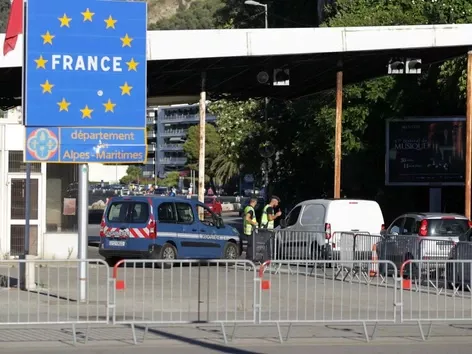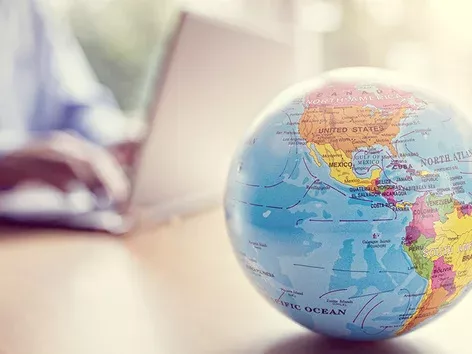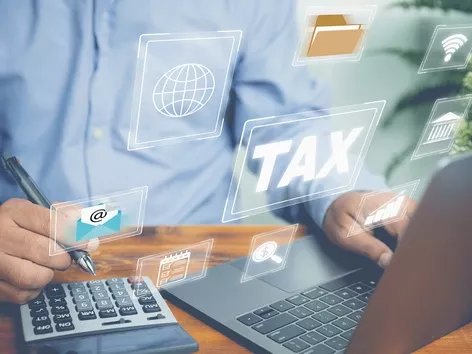France to introduce border controls: what is known about the reasons for this decision and what are the possible consequences for travelers?
Table of contents
- What is known about the strengthening of border control by France?
- What are the reasons for strengthening border control in France?
- What will change for tourists in connection with the introduction of border control?
- How will the introduction of border control affect EU countries?
- Which EU countries have also restored border control?

France has announced that it plans to temporarily restore border controls from November 1, 2024. The main reason for such a decision is the security threat associated with illegal migration. Experts predict that this decision will be valid for 6 months. Find out how the new rules will affect travelers
France has announced the introduction of border controls to increase the level of security in the country. The new rules will come into effect starting today, November 1, 2024. The strengthening of border control in the EU is further discussed in this article.
What is known about the strengthening of border control by France?
Border controls between France and Italy have been in place since 2015 due to the migrant crisis.
However, from November 1, 2024, this measure will not only apply to the border with Italy, but will also apply to all neighboring countries, namely Belgium, Luxembourg, Germany, Switzerland and Spain.
Preliminary monitoring will last until April 20, 2025, when the results will be evaluated and a decision will be made on whether to extend the emergency measure or cancel it.
What are the reasons for strengthening border control in France?
The French government singled out the following threats, which became the reasons for strengthening border control in the country:
1. Serious threats to public order and internal security from terrorist activities.
2. The growing presence of criminal networks that facilitate illegal migration and human trafficking.
3. Migration flows through which radical individuals risk to penetrate.
What will change for tourists in connection with the introduction of border control?
Normally, travelers traveling between Schengen countries can move freely without passport checks. However, due to the introduction of border controls, travelers from Belgium, Spain, Luxembourg, Switzerland, Germany and Italy will need to present an identity document such as a passport or national identity card.
Non-EU nationals residing in France may also need to present their Carte de Séjour.
Border checks are expected to result in long queues, particularly with Germany, which also reintroduced controls at all its land borders in September, meaning travelers can be screened by authorities in both countries when traveling between them.
Travelers crossing France via the land border will be most affected. Those arriving by car or bus are advised to allow extra time.
To move, travel or work safely in a new country, you will need health insurance. You can apply for an extended policy on our website here.
How will the introduction of border control affect EU countries?
The Schengen area was created in 1995 and became the main pillar of the European Union. The main idea of Schengen was the absence of border controls between member states of the zone. Thanks to the signed agreements, people and goods were exempted from border control between states. Such actions contributed to the economic development of the EU. However, despite the fact that the Schengen area is gradually expanding, for example, in the spring of 2024 Bulgaria and Romania partially joined the European Schengen area of free movement, in recent months more and more European countries have announced the restoration of border controls on their own territories.
Importantly! Schengen rules allow for the re-introduction of temporary controls "as a last resort" and "in the event of a serious threat to public order or internal security", but too long a "temporary" measure may call into question the security and integrity of the Schengen area.
Which EU countries have also restored border control?
France is not the first EU country to restore the border border, earlier a similar decision was also announced:
- Germany
In mid-September, Germany reintroduced temporary border checks, including at the border with France and the Netherlands, in an effort to "combat illegal migration and cross-border crime." More details on Germany's reintroduction of border controls in this article.
- Austria
Austria has also reintroduced checks at its own borders since mid-October, citing in particular "risks related to illegal migration, migratory pressure in the border area and the strain on the asylum system and basic services". Checks have started working at the borders with Hungary and Slovenia.
- Denmark
Denmark will follow suit on its borders with Germany from November 12 for the same reasons.
- Slovenia
In Slovenia, checks are in place at the borders with Croatia and Hungary.
The Netherlands, Norway and Sweden also plan to introduce checks at all their land borders.
In connection with the introduction of border controls in many European countries, we advise tourists to take this into account when planning their trips, in particular, to set aside time for passing checks and follow the latest news from the world of migration on the Visit World portal.
We will remind you! The European Union has once again announced the postponement of the launch date of the electronic entry/exit control system for citizens from third countries. We have already told why EES is not ready for launch and what features this system has.
Igor Usyk - Head of Migration department at VisitWorld
To ensure a safe trip abroad, I advise you to contact a specialist. My colleagues, qualified specialists with legal education, will help you avoid unpleasant situations while traveling around the world.
Products from Visit World for a comfortable trip:
Checklist for obtaining a visa and necessary documents in the France;
Legal advice on immigration to the France;
Travel insurance for foreigners in the France;
Medical insurance all over the world.
We monitor the accuracy and relevance of our information, so if you notice any errors or inconsistencies, please contact our hotline.
Frequantly
asked questions
Does France have border controls?
Which border is the most unprotected in the world?
Which European country has the strictest immigration laws?
Recommended articles
3 min
Work
The best countries where you can open a business abroad in 2025
Starting a business is always full of challenges, especially in a foreign country. It should be remembered that some states have different requirements and standards for starting a business, so it is important to study them before starting your business. Find out which countries are the best to start a business in 2025
05 Oct. 2024
More details2 min
Work
Working abroad in 2024: which countries offer the highest salaries to foreigners?
When moving to another country, you should consider the salary because it will ensure the comfort of your life. So, which countries in the world pay the most? Find out more about the top countries with the highest salaries for expats in 2024 and in which countries you can expect the highest salary increases
25 Sep. 2024
More details2 min
Expats
Taxes for expats: what you need to know when moving abroad?
Moving abroad is always a challenge. Expats who move to other countries admit that finding employment and paying taxes is a complicated system. Find out what features of the taxation system should be taken into account when working outside your country
14 Sep. 2024
More details1 min
Education
F1 visa in the USA: the government restricts study abroad for holders of this type of permit
The US government has reduced the permitted period of stay abroad for international students. Find out what changes expats can expect and how educational institutions have responded
09 Oct. 2024
More detailsAll materials and articles are owned by VisitWorld.Today and are protected by international intellectual property regulations. When using materials, approval from VisitWorld.Today is required.
